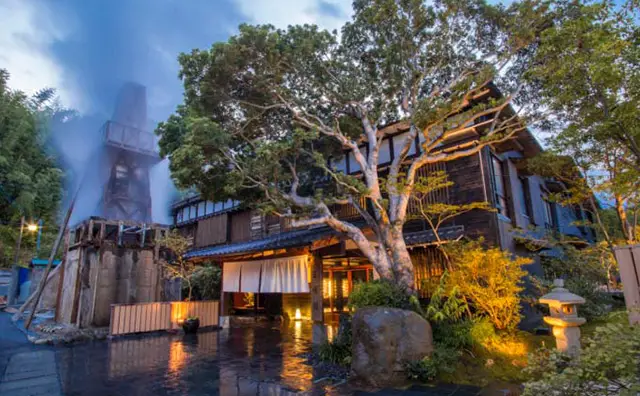
For the longest time I have been interested in REITs. However, it has always bothered me how debt is their primary driver of growth and returns. In order for REITs to expand they need to take on more debt, and in return they can pay out all of their profits for nice tax breaks. I disliked this and wondered if there was a way to invest in real estate without investing in the terrible REIT structure.
Enter FJ Next Holdings.
FJ Next is a Japanese REIT alternative. It invests in real estate but that is not its sole operation. It manages condos and Ryokans alongside its design, home renovation and construction segments. This helps differentiate its portfolio from just pure real estate holdings and construction.
But, that’s not what you are here for, you are here to understand why FJ next is such a great company and why you should potentially invest in it.
Thesis: FJ Next is undervalued on a current asset basis, has a moderately large stable and growing dividend. It’s small Ryokan segment has been hurt by a reduction in leisure travel, but could serve as an impetus for growth alongside its real estate management business.
FJ Next is Quantitatively Undervalued
Many types of real estate have taken a hit over the past year and a half. Especially commercial and leisure travel. FJ next is mostly a residential company and has remained stable in price. It nonetheless has grown in actual value making it an excellent purchase.
Sitting at around $300 million US dollars market cap it is firmly in the small cap territory and is ripe for growth while being firmly undervalued.
Some important value metrics outline how cheap this company is.
- NCAV: 78%
- PE ratio: 6
- Dividend Yield: 4.71%
- Payout Ratio: 26%
- Total debt to equity: 38.16%
Not only is this company trading below its net current assets but it has nearly enough cash to cover all of its debt. The high dividend yield is covered almost 4 times by its current profits that are lower than before the travel industry was hit hard.
The company is also in a position to reap the benefits of an uptick in travel with investment in its smallest segment.
Business Segment Breakdown
FJ Next is broken down into 4 business segments.
- Real estate development business.
- Real estate management business.
- Construction business.
- Ryokan business.
These businesses are complimentary to each other while at the same being different enough to thrive in different sectors. The real estate management business and ryokan business are likely the reasons that this company is not classified as a REIT.
Not that they would be forced to be a REIT if they did not exist. Since FJ Next likely doesn’t find the REIT business structure beneficial to their business goals of safe growth in differentiating but complimentary verticals.
Of the four verticals the real estate development business is the largest. It builds and sells condominiums for sale. It accounts for 81% of total revenues produced by the company.
Ryokan Business Segment

The Ryokan business by contrast is just .6% of the company revenues constituting its smallest segment.
Management objectives do not emphasis expansion in the Ryokan business but rather explain that their policy is to grow stably over the long term. They will however, accurately respond to changes in the environment surrounding the real estate industry.
While this does not explicitly say any expansion is planned in the ryokan segment, it is possible as smaller operators retire and offer their locations for sale.
For reference the last time the ryokan business segment expanded was in 2019 when it added one location making a total of four locations to the previous three.
Profit Expansion in Real Estate Management Segment
The one segment management openly explains it is focusing on to increase both revenues and profits is the real estate management business. As Gala Mansion and Gala Residence both get built out by the development business it will increase profits in this segment organically at a low cost.
Qualitative Factors Contributing to Long Term Growth
Management is focusing on profit and mindful expansion. This will decrease debt insecurity and potential for bankruptcy. It also assures shareholders that their shares will not be diluted while owning a company that currently trades below book value.
Management seems resistant to buying back its own shares since it sees more benefit in building out condo supply to increase management revenues. This is a good use of capital as long as it retains a high level of return on assets. If at any point it can not achieve good returns on assets it needs to consider buying back its own shares.
The Ryokan business is currently suppressed but will create more revenues once tourism returns to the country. Its impact may be small but could still serve as a long term growth factor.
Japans Recovering Economy
Japan has been in an economic downturn for quite some time. Often referred to as the lost decades, the stock market has not reach new highs since 1989. However, this is beginning to change as the market is finally approaching its highs once again.
A windfall for the Japanese economy can create higher demand for FJ Next’s products as it specializes in high end housing and leisure.
Potential Concerns for Future Growth
The Japanese population in decreasing in size. Tokyo has not seen the same decline in population that the rest of the country has seen until recently. This new decline in population in Tokyo could decrease demand for housing in Tokyo. In the long term this could pose a threat to growth.
Construction supply costs and power are also increasing which may reduce margins for a company that is reliant on active management, tourism and condo construction.
Shareholder Perks

You may have heard of shareholder benefits from the likes of Disney and Berkshire Hathaway. They offer such things like discounts and special gifts. But, Japan takes it to the next level to encourage long term shareholders. FJ Next is one of these company’s that offers a shareholder perk.
If you hold over 1,000 shares of the company you are entitled to a hot spring inn ticket and a catalog gift worth 15,000 yen in total. The benefits go up until they reach 65,000 yen when owning over 10,000 shares in total.
Unfortunately, as an investor in the United States I have been unable to use or even get these shareholder perks. Sadly it is my dream to go to one of these hot springs and one day I will figure out how. In the meantime a company called Stockperks is working out the details and will hopefully help make my dream come true in the near to distant future.
How to Invest in Small Cap Japanese Stocks
In order to invest in Japanese stocks you will need to have your base currency exchanged into yen. Depending on which currency is your base currency this can give you better or worse buying power.
I live in the United States and currently the only way I have found to efficiently invest directly into small Japanese stocks is through Interactive Brokers.
FJ Next Worthy of Consideration
While FJ Next is not a traditionally undervalued company it does have many interesting attributes. It seems as though it is a relatively unknown growth company that has fallen into value territory for various reasons. It may be managements safe growth philosophy that has caused it to be so cheap but, over a long enough period of time this company could make you reasonably wealthy.
Over the time that it has been apparently traded publicly it has return on average 8 percent per year. Although that was at the beginning of the 2008 financial crisis. It seems to have found its footing and has still traded flat for around 4 years as its valuation rises and its stock price stays flat.
Disclosure: I am/we are long FJ Next. I wrote this article myself, and it expresses my own opinions. I am not receiving compensation for it from FJ Next or any interested parties. I have no business relationship with any company whose stock is mentioned in this article.
